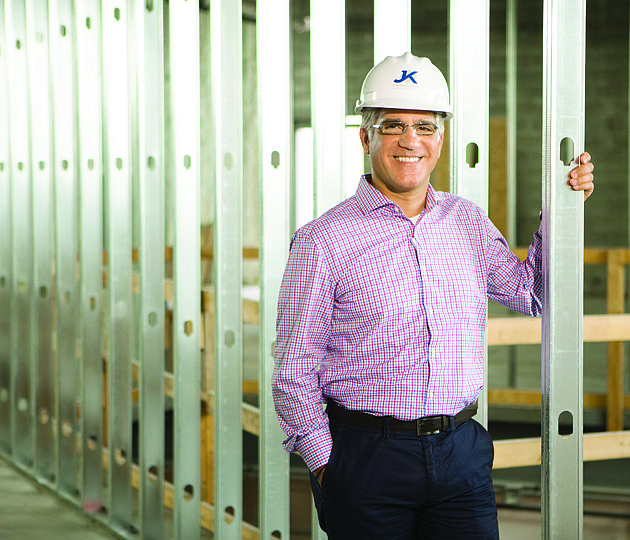- July 26, 2024
-
-
Loading

Loading

Law degrees are hard to come by in the general contracting business. But becoming a lawyer and then taking over the business was always part of the plan for Joseph Kokolakis.
The 48-year-old president and owner of Tarpon Springs-based J. Kokolakis Contracting graduated from Emory School of Law and worked a couple years in a construction litigation firm before becoming general counsel at his father's contracting firm in 1989. Over the last five years, Kokolakis bought the family business from his dad, brother and other family members. He declined to disclose details.
Despite taking ownership of a company during one of the toughest times in the industry, Kokolakis has managed to not only endure the downturn, but thrive during it.
“During the tough times, the tough get growing,” Kokolakis says. “Through this downturn we've expanded significantly both geographically and in customer base.”
The change in strategy seems to be working. The company earned $176 million in 2013 revenue, up 48% from $118.8 million in 2012, good enough to place it as the second-largest contractor on the Business Observer's list of the top 50 contractors on the Gulf Coast (see section B). The company has grown over the year from 138 employees to 200.
The firm is primarily focused on contracting federal jobs, with most of its business coming from repeat customers.
The company's biggest project in 2013 was a $54 million job to design and build the modernization of the 150,500-square-foot Scott Barracks at West Point. Other significant contracts include a $41.2 million Army National Guard Training Center Complex at Fort Carson in Colorado, a $39 million job to build the State University of New York Center of Agriculture and Natural Resources facility, and a $37.4 million project to construct a seven-story Florida A&M University residence hall.
Kokolakis says running a successful business isn't rocket science. It's all about “eliminating problems efficiently before they foster,” he says.
Every job has its issues; it's how a contractor deals with those issues that make it stand out.
Typically issues arise from a disconnect in what the owner expected and what the designer communicated in the construction documents. Other times it's simply because the site condition is different than expected. “As long as you identify the issue quickly and propose a solution, or proactively address and communicate the problem, you place the designer and owner in an educated position to make a decision,” Kokolakis says.
His law background has helped the company stay out of any litigation, by appropriately documenting and tracking to resolve any issue “amicably and objectively,” he says.
Most federal projects are awarded by best value, weighing price, past performance and experience on projects of similar size and scope. All performance metrics for the last seven years are documented in a government database.
J. Kokolakis received an outstanding rating for a $108 million design-build contract, which has helped it win a number of contracts with the Army Corps of Engineers, Kokolakis says.
“[Law school] trained me how to think. How to take any obstacle and break it down so it could be addressed,” Kokolakis says. When business slowed in Florida, Kokolaski survived by finding a way to service projects out of state.
Finding a location near a major airport was one of the main reasons for establishing the company's headquarters in the Tampa area. Before accepting a project, they look to see if there's a direct flight to a project's location.
Kokolakis will pay for his project team members to relocate with their families for projects that typically take anywhere from a year to three years to complete.
On occasion, the company will even fly its subcontractors to work on jobs. The company asked Pinellas Park-based Superior Mechanical Systems and Tampa's Bay Area Painting and Waterproofing to work on a project in New Orleans.
In addition to bidding on out-of-state projects, the company has also expanded to some private development work, ranging from a Walgreens in Clearwater to a mixed-use project of 30 condos over retail space in Dunedin.
The biggest risk is accurately pricing jobs, Kokolakis says, which is not always easy when bidding on projects two to three years out. With an uptick in the economy, the cost of materials is going up, he says. Scarcity of labor is also an issue: “the qualified tradesmen have left town,” Kokolakis says.
Kokolakis is determined to adjust the strategy as needed to keep the company growing. “I tell my guys, 'We've made it through the downturn, and now we have to survive the recovery.'”